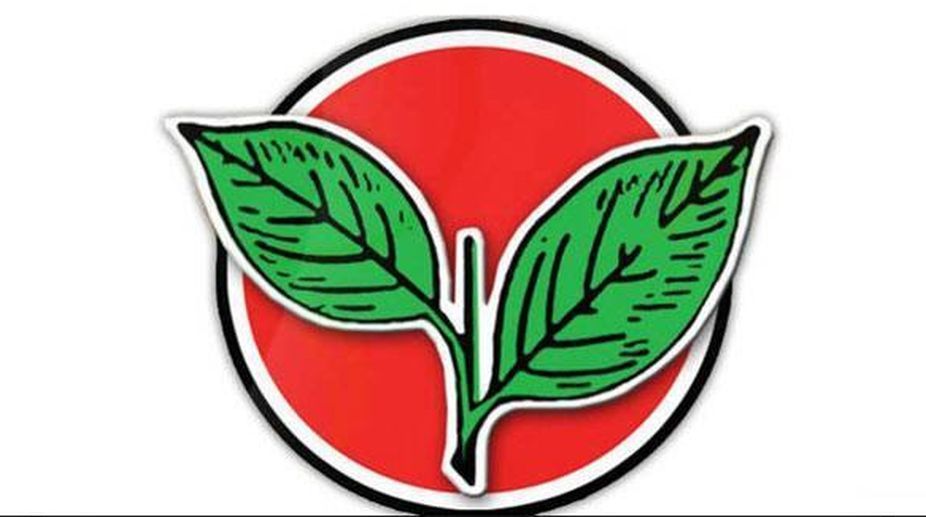PM Modi slams DMK’s ‘anti-Tamil culture’, vows to expose its ‘dangerous politics’
Addressing a gathering in Vellore, Modi said that the DMK wants keep people of Tamil Nadu trapped in old thinking and old politics.

AIADMK symbol (Photo: Facebook)
The split judgment delivered by the Madras High Court in the disqualification of 18 AIADMK MLAs has given a fresh lease of life to the minority government of Edappady Palaniswamy in Tamil Nadu. The government now has the support of 114 members in the 234-member Assembly.
The two Judges on the Bench, Chief Justice Indira Banerjee and Justice M Sundar, held diametrically opposite views on the Speaker of the Assembly P Danapal disqualifying the 18 MLAs who neither defied any whip by their party nor voted against the government, to incur disqualification under the 10th Schedule of the Constitution, popularly known as anti-defection law.
The 18 constituencies they represented have been deprived of representatives in the Assembly since 18 September last when their elected members were disqualified in a mala fide order and will continue to remain orphaned as the case goes before a third judge because of the indecisive verdict of the first Bench.
Advertisement
All that the disqualified MLAs did was to submit a memorandum to the Governor expressing their lack of confidence in Palaniswamy and saying that they were withdrawing their support to him. The memorandum requested the Governor to “initiate the constitutional process.” The Supreme Court’s Bommai judgment makes it clear the only course open to the Governor is to ask the Chief Minister to seek a vote of confidence on the floor of the House. He did no such thing.
On a complaint from the AIADMK’s chief whip, the Speaker disqualified 18 of the MLAs who signed the memorandum. This was done under Para 2(1) (a) of the 10th Schedule which provides for disqualification if an MLA voluntarily gives up membership of the political party. None of the 18 MLAs gave up membership of the AIADMK on whose “Two Leaves” symbol they were elected in 2016.
The Chief Justice was of the view if the MLAs’ action resulted in the fall of their party government, it was tantamount to “implied relinquishment” of their membership of the party. STK Jakkaiyan, who was also a signatory to the memorandum, but made a volte face, was spared. The AIADMK of the late J Jayalalitha did not exist during the relevant period according to the Election Commission of India, which was ignored by the Chief Justice in upholding the Speaker’s decision.
Palaniswamy’s party, as recognised by the EC, was called AIADMK(Amma). When he took a vote of confidence, 11 AIADMK MLAs, including the present Deputy Chief Minister O Panneerselvam, defied the official whip and voted against the motion, a clear case of violating the anti-defection law.
The Speaker did not disqualify them. Delivering his separate dissenting order “with the greatest respect for the Chief Justice,” Justice Sunder said the Speaker’s order was perverse, mala fide, against the principles of natural justice and violation of the constitutional mandate. In such cases a judicial review is called for.
Advertisement